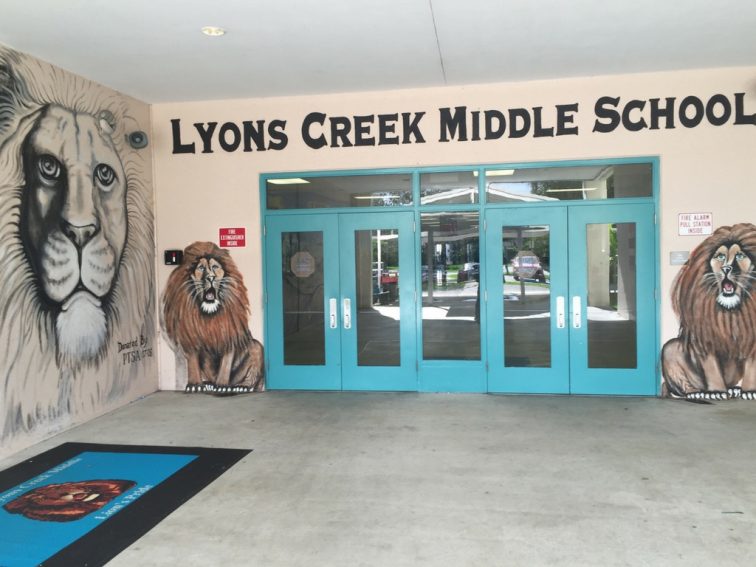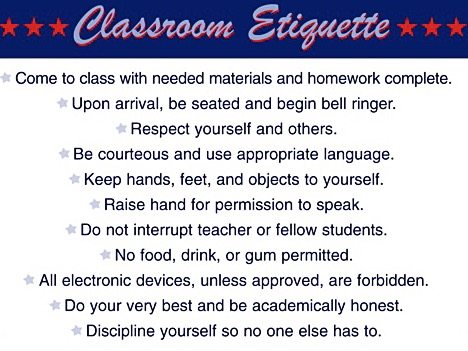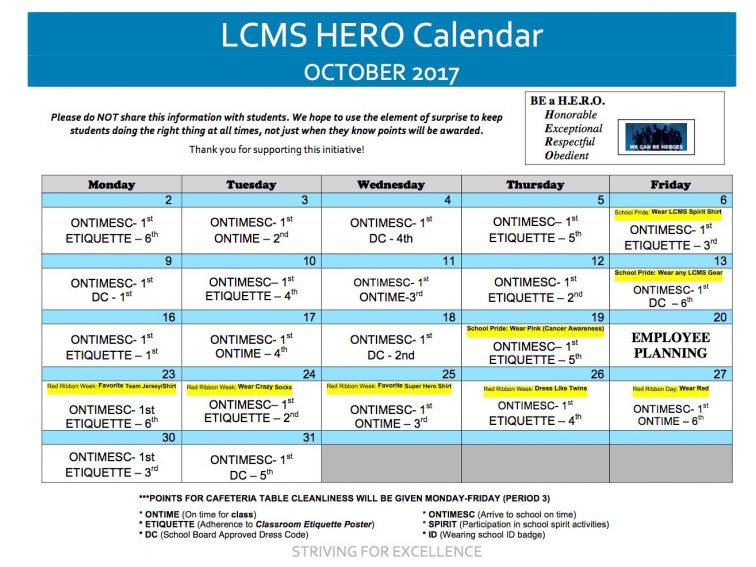
This Principal Turned School Culture Around—Twice
by Michele Israel
When Horace Hamm came to Lyons Creek Middle School in 2014, he was a man on a mission of change.
Lyons Creek is one of 37 different middle schools in Broward County Public Schools. Opportunities for improvement abounded and substantially improving the learning environment was where this new incoming principal intended to start.
Changing the culture of a Title 1 school with approximately 2,000 students – in a large, public district – would be no easy feat. But, Hamm came to Lyons Creek because he had done this before and he came prepared with tools and a plan.
At his previous school, Hamm used Hero K12 to turn its culture around and build a more positive environment. The customizable student behavior management platform redirects students away from negative actions by reinforcing positive behaviors.
The Focus Of The School Turn-Around
At Lyons Creek, Hamm began by:
1. Putting a renewed emphasis on student interests by changing the school’s vision statement to “providing professional & educational excellence in a student-first environment”
2. Building positive relationships with students on a daily basis
3. Creating an open-door policy between administration and staff
4. Empowering teachers through authentic collaboration and professional learning communities
5. Recognizing and rewarding students and teachers
6. Using a common classroom etiquette poster and reinforcing classroom and school-wide expectations through the Hero program
7. Identifying the student behaviors the school wanted to change
Then, he put Hero to work.

Targeting The Behaviors That Matter The Most
Hamm configured Hero to target three primary behaviors and reward student compliance with points:
Being on time: Students who get to school on time each day earn a Hero point. Hamm has observed that rewarding students for promptness has decreased tardiness. Hamm says that before Hero, there was no tech system in place to monitor attendance. Not only can he now digitally document rates, he can effortlessly contact parents about tardiness through Hero’s interface.
Hallway etiquette: If students observe hallway rules between classes—walking to the right to reduce traffic jams and not running—they earn a point.
Lunchroom cleanup: When an entire class cleans up after lunch in the cafeteria, each student in that class receives a point. If everyone in the class does not participate, nobody gets a point.
Hamm offers additional point-earning opportunities for specific actions students take during the week like honoring the dress code, following classroom etiquette and generating school culture spirit by wearing Lyons Creek gear.
Teachers offer in-class incentives, too like points for being on time and supporting peers. To keep students on their toes, Hamm sends out a monthly behavior calendar to teachers where he emphasizes a specific behavior to focus on for a specific class period.

Reinforcing Good Behavior With Great Rewards
Students can redeem Hero points they earn for rewards like school swag, gift cards, a no-homework pass, or access to school events like a proficiency party or a Friday kickball game on the school’s field.
On top of that, Hamm rewards the school’s highest Hero point earners every Monday with prizes like water bottles, USB phone chargers, trinkets, or gift cards. And each quarter, he celebrates the top 250 students from each grade with major rewards. Last year, the Miami Dolphins sponsored a field day; this year, the Miami Heat donated game tickets.
Hero also makes it easier for Lyons Creek to reach out to parents to let them know about their children’s achievements and less-than-satisfactory behavior. Parental involvement and reinforcement helps keep students on track while building school culture and engagement.
Quantifying A Measurable Impact
So, does Hero work?
“Absolutely,” says Hamm, pointing to evidence of its impact on the overall school culture and environment:
There has been an 11 percent increase in students coming to school on time, thus there’s been a reduction in tardiness referrals.
Students are more focused in the classroom which, Hamm conjectures, has led to improved academic performance. In the 2016-2017 school year, Lyons Creek moved up from its previous B grade and became an A-rated school. This past year, it was one of three Title I schools in the county—and one of 27 schools statewide—recognized for exceeding expectations. Hamm believes that Hero has played a huge role in his school’s achievement.
Cafeteria upkeep has improved, and hallway decorum is at a high.
Relationships between students and teachers are much stronger because, Hamm believes, students truly welcome recognition for doing the right thing. Students encourage teachers to use Hero and respond to the positive reinforcement, which is mutually appreciated.
One of the greatest benefits of using Hero, explains Hamm, is that it shifts the school’s energy away from the few students who don’t always behave as they should. A lot of energy goes into disciplining those students, taking focus away from those who are on the positive side of behavior and attitude. With Hero, positive energy is what garners attention, and what ultimately effects a positive change in School Culture.
With less time spent on tardiness, classroom disruptions, and behavioral referrals, Lyons Creek faculty can focus on instruction, engaging students in the curriculum, and continually growing classroom positivity.
An Expert’s Advice For Using Hero
What advice does Hamm give other principals who are thinking about using Hero? “First, identify areas that need improvement,” he suggests. “Analyze these needs to think about how you can use Hero to attack the challenges in a positive way.”
Hamm should know—Hero has worked for him twice. “I’ve been doing this work for 23 years,” he explains. “There’s no doubt in my mind that Hero has been a major contributor to all that is positive at Lyons Creek Middle School.”
Michele Israel owns Educational Writing & Consulting and works with large and small educational, nonprofit, and media organizations to bolster products and programs. Her career spans more than 25 years in the field of education as a traditional and non-traditional instructor, professional developer, writer, and curriculum developer.
